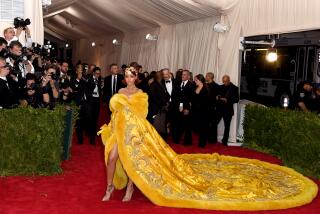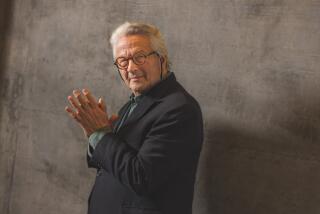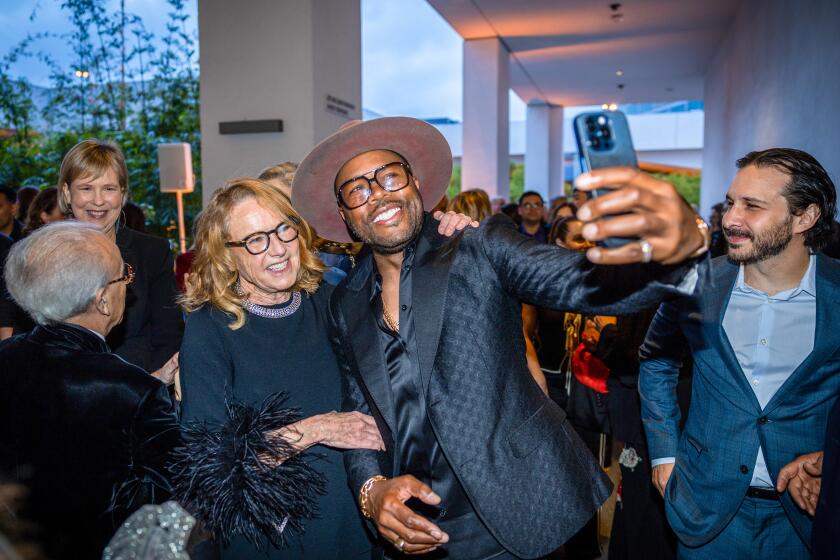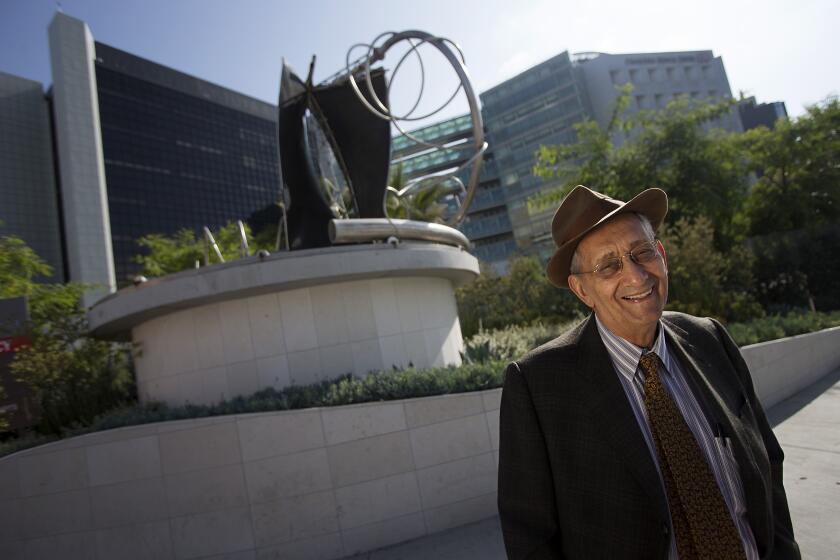Music : L.A. Chamber Orchestra: Twin Peaks
The idea of split leadership was given a successful try by the Los Angeles Chamber Orchestra at Royce Hall Friday night. In other words, Larry Rachleff held the reins in William Bolcom’s “Orphee-Serenade” at the top of the evening, leaving Iona Brown at home on her turf, Haydn and Mozart, later on.
But the effect was not like attending two separate concerts since Bolcom--never one to suppress a musical giggle--often reaches back into the 18th Century in his irreverent six-movement work.
With the greatest of ease, Bolcom can switch from shy lyricism to obsessive Shostakovich-like propulsion, from flippant wind tunes, free-form freakouts and in-your-face tweaks to a touching elegy for the late pianist Paul Jacobs. Here, it was great fun, not only for the audience but also quite noticeably for the musicians.
Substituting for an ailing Heinrich Schiff in Haydn’s Cello Concerto in D, David Geringas, the 1970 Tchaikovsky Competition gold medalist, found himself coping with an off-night, frequently rushing ahead of the orchestra with a number of sour notes protruding. Yet Brown, now back in her customary first violin chair, kept things under control.
The real moment of glory for Brown & Co. came at the end, with a scintillating, superbly played performance of Mozart’s Symphony No. 41 (“Jupiter”). Brown obviously has been absorbing recent refinements in period performance practices, taking the Menuetto at a bracing pace, stressing wide dynamic contrasts and eliciting sharp, rifle-like cracks from the timpani instead of the usual dull booms. Indeed, the whole performance had a rugged, direct sound much like those of Roger Norrington, and it was made to order for the high-definition acoustics of Royce.
More to Read
The biggest entertainment stories
Get our big stories about Hollywood, film, television, music, arts, culture and more right in your inbox as soon as they publish.
You may occasionally receive promotional content from the Los Angeles Times.






